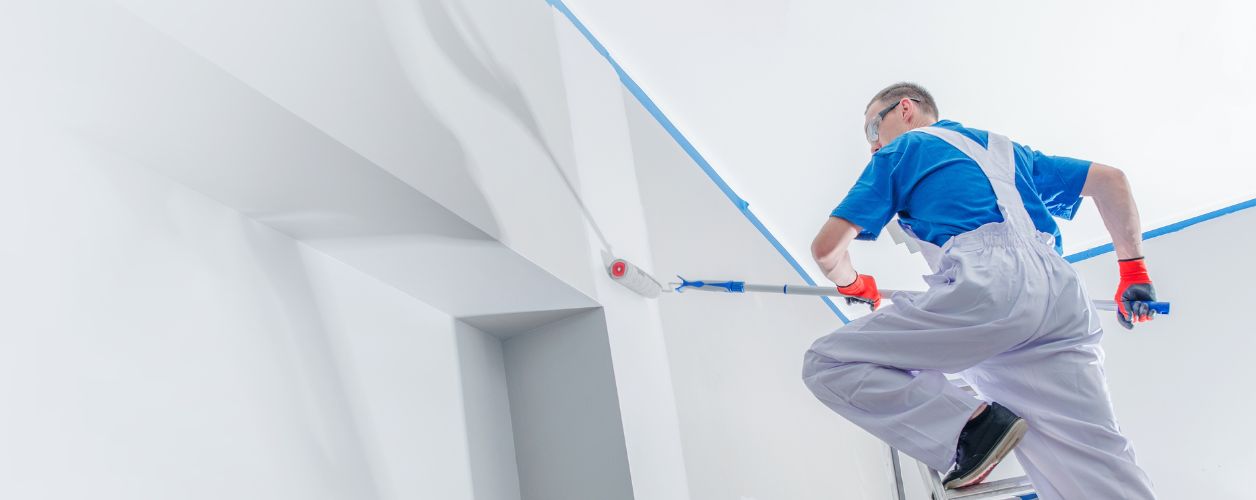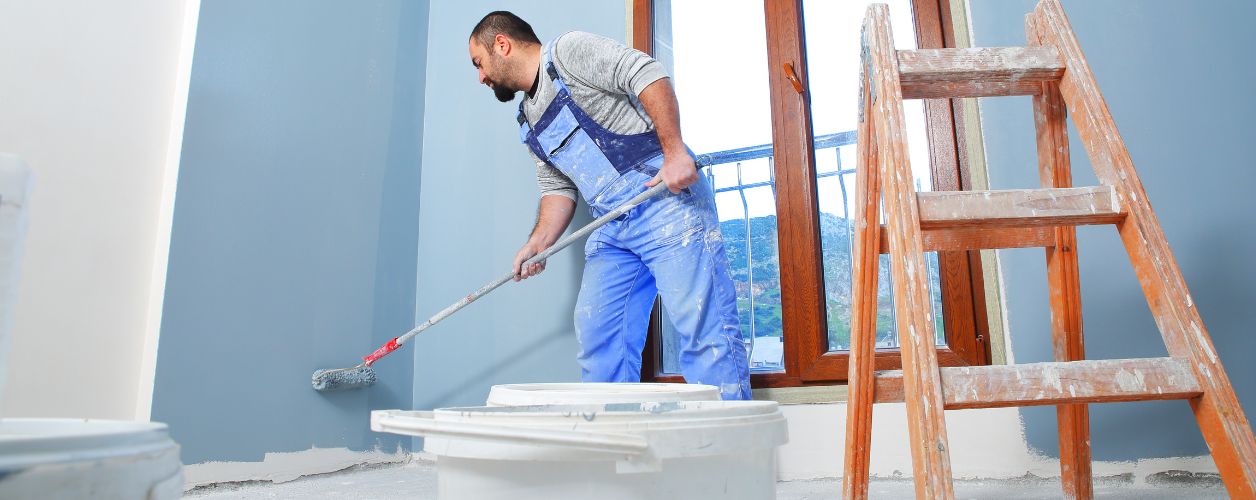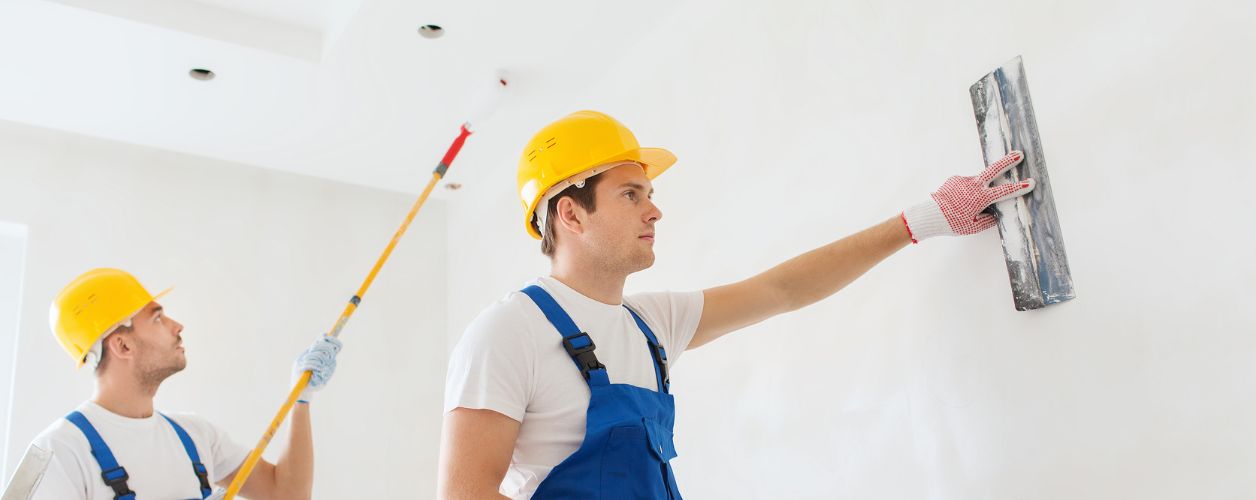How Much Will A Painter Charge Per Room? Painting Cost Breakdown 2025
The cost to paint a room can vary widely, from £50-£100 for a DIY job to £150-£600 or more when hiring a professional.
Refreshing your home or office, improving its style and valuing it can be easily achieved by simply painting a room, with no need to indulge yourself in the process of a complete remodelling. If you are selling a house and making it presentable, re-painting an old house after years of damage or abuse or just being bored with the same old thing, it is essential to know the prices. In this guide, we are about to reveal all you need to know regarding how much a painter will charge per room in the UK. Be wise, and understand here what homeowners know about the cost of painting a room.
Average Costs for Room Painting
On average, painting a single room in the UK costs between £150 and £600, depending on a variety of factors including room size, condition of the walls, type of paint, and whether you hire a professional or do it yourself.
- Small room (box room, WC): £80 – £150
- Medium room (bedroom, lounge): £150 – £300
- Large room (open-plan kitchen-diner): £300 – £600+
They generally cover the cost of labour and materials, but not extras such as painting the ceiling, skirting boards and repairing the walls. You should also obtain a detailed quote in order to know what you are paying.
Factors Which Affect The Cost Of Room Painting
1. Room size, and complexity
Understandably, when the room is larger, more paint and labour will be used. However, complexity counts as well. Rooms that have high ceilings, alcoves or awkward corners take more time to be painted, and this can add to the overall cost.
2. Preparation Work
Sometimes surfaces require cleaning and/or sanding (and sometimes patching) before a brush ever gets near the wall. In case you have poor and/or wallpaper in an unsatisfactory condition, which requires scraping, the room painting price will escalate to a high range.
- Wallpaper removal: £150–£300 per room
- Minor wall repair (filling cracks, sanding): £50–£200
3. The Quality and Type of paint
A budget trade paint is very different to a high-end designer brand like Farrow & Ball. The cost will also be influenced by the sheen (e.g. matte, silk, satin) and whether or not you would choose washable or specialist paints.
- Budget paint (per 5L): £15 – £25
- Mid-range paint (per 5L): £25 – £45
- Premium/designer paint (per 5L): £45 – £90+
4. Professional vs Do it yourself
Employment of a specialist will guarantee a top finish, particularly in complex tasks. A painter and decorator typically charges £150 – £250 per day, and most rooms take 1–2 days to complete.
Costs of Painting Different Rooms
Bedroom
One of the easier rooms to settle with paint is the average bedroom. It normally consists of four simple walls, a ceiling and simple woodwork such as skirting or a door frame.
DIY Cost: £80 – £120
Chances are that with a room painting job, you are doing by yourself, you will require two layers of emulsion, a roller, a brush set, masking tape, dust sheets and even some filler for patching small holes on the wall. The price mainly depends on the quality of the paint that you use.
Professional Cost: £200 – £300
Preparation, surface patching, and smooth finish will not only be faster when carried out with a professional decorator but also be done to a higher standard. This price normally covers labour and materials without any bulk preparations of special finishes.
Living Room
Other rooms, like living rooms, may have more complexity, like being bigger than the bedroom and having structures like alcoves, fireplaces, and larger window spaces.
DIY Cost: £110 – £150
The size of the room would make more paint to be required. Special coats or primers might be needed, should your living room walls be of textured wallpaper or earlier of dark colours.
Professional Cost: £250 – £400
Professionals consider additional space, potential awkward contours, and having smooth skin on their large walls and ceilings.
Kitchen
Although kitchens may be small in terms of the area of the walls that can be painted (due to cupboards and tiles), they have a higher demand for special kinds of paint. Steam, grease in the cooking, and general wear and tear all translate to the fact that you will require scrubbable or stain-proof paints.
DIY Cost: £90 – £130
Kitchen-rated paints (e.g. durable silk emulsions, or acrylic eggshells) may cost more than normal matt emulsions.
Professional Cost: £200 – £350
The increased price is to cover the fact that the preparation has to be more thorough with the right finishes especially near splashbacks and high up close to extractor fans.
Bathroom
Paintwork is not easy in such places as bathrooms, due to the moisture and mould. There is therefore a need to use moisture-resistant paints.
DIY Cost: £80 – £120
You will have to buy anti-mould or bathroom-specific paints, which will be somewhat more costly. It is necessary to paint everything properly ventilated.
Professional Cost: £200 – £300
A decorator will apply mould-inhibiting primers where necessary and be sure to have a sharp finish around edges where tiles, fixtures and ceilings are concerned so as to produce a clean finish.
Other Expenses To Consider With Room Painting
The cost to paint the room is not always about the walls. Hidden or neglected, there have been many other factors that might add to the total cost.
- Ceilings: £50 – £100
Painting the ceiling can be used to make a room bright, although painting the ceiling is physically tedious and sometimes very time-consuming, making it increase the cost of the painting.
- Woodwork (skirting boards, doors, window frames): £80 – £200
Woodwork differs in tools and materials that are used in painting the woodwork, paint on primer, undercoat, and gloss or satin enamels. Sanding in between coats is an added time-consuming process as well. Gloss finishes especially require a steady hand which would prevent any brush marks.
- Movement and protection of furniture and surfaces: £20 – £50
When you are not in a position to clear the room, most painters will bill you for moving furniture and lifting the carpet or floor coverings. Some people have this in their quote, and some will have it listed separately, particularly in cases where there would be much furniture to move or where delicate pieces would have to be moved and cushioned.
- Accessibility and Travelling Barriers: £25 – £50
In case you have a place that is hard to reach, such as a flat with no elevator or a house in the suburbs far from the main city, you might pay decorators and painters a little more to accommodate the additional effort and time to deliver tools and ladders where needed.
DIY vs Hiring a Room Painting Professional
The DIY vs professional argument does not have any single solution, but in most cases, it boils down to the aspect of cost. The comparison between the two options is the following:
Estimated costs of DIY Painting
Considering creating it yourself might be a tempting alternative, particularly, when you have to act on a stricter budget or you simply like doing house-improving work with your own hands. This is what you may want to spend when you are doing a job on a room yourself:
- Paint: £40 – £90
The price is subject to the brand, quality and the amount required. Higher quality emulsions or specialist paint (e.g. mould-resistant to use in bathrooms) will be more expensive, but less expensive varieties exist everywhere.
- Tools and Supplies: £20 – £60
You will at least require the following; brushes, rollers, trays, masking tapes and dust sheets. It is your first time to paint, and a decent kit will provide a visible improvement in the comfort of working and the result.
- Optional Extras: £20 – £50
You may also need filler, sanding blocks, a step ladder or sealant depending on the status of the room. Such extras may accumulate, in case you are working on old or deteriorated surfaces.
Total Typical Spend: £80 – £200
Overall, painting a room yourself can cost under £100 if you already have some supplies, but may stretch towards £200 for first-timers or those opting for higher-end finishes.
Cost Of Professional Painting
When you hire a professional decorator and painter, as you can well imagine, the price will go up, but it will deliver experience, time, and a perfect finish. Here is the general breakdown of the costs:
- Labour: £150 – £250 per day
Most professional decorators work on a day rate, and a typical-sized room would take one to two days. More detailed designs or added details e.g. woodwork or ceiling might take more time.
- Materials (if included): £30 – £90
Most decorators will bring their paints, brushes and materials, particularly where you are content to use their favoured brands. But you have the option to bring your paint also in case you want your certain product and finish.
Total Typical Spend: £250 – £600 per room
This includes a simple painting job in a typical room but may go up or down depending upon where you live, the skills of the decorator and any work that is necessary (e.g. repairing cracks in plaster or having wallpaper removed).
Pros and Cons: DIY vs Experts
DIY Pros:
- Lower initial charge: You are not paying the labour which will be the most costly element of the work.
- Convenient time: You are free to work in the evenings, on a weekend or a few days in a row, without having to adjust to others.
DIY Cons:
- Time-gulping: Even a minor room can take a number of hours, particularly when one prepares, dries and uses many coats.
- Shoddiness Predicted: You may end up with an inexperienced job projecting a shoddiness. Parts can be rough, especially on wrapping edges or corners.
Painting Experts Pros
- Even finish: A good painter will be able to know how to prepare surfaces, cut in clean lines and not leave streaks or roller marks.
- Swifter Work: The painting experts take a minimum of time. A room painting work that may take 6-7 hours, a professional can finish within 3-4 hours with better style and finishing.
Professional Cons:
- More expense: Higher labour costs for standard room painting work than DIY costs.
- Hiring issues: Sometimes, hiring professionals can be an issue. It may take time to find and hire a reliable painter in your area.
How to Get the Best Rate to Hire a Room Painter
- Compare Quotes: It is important to get not less than three quotes. Make sure that they are comprehensive and include prep, materials and cleaning up costs.
- Inspect References and Reviews: A professional tradesperson will not hesitate to show you old customers or reviews.
- Question concerning paint and materials: Find out whether they provide paint or not or whether you will be required to buy the paint yourself.
- Book Offseason: Spring and summer are in season. Making your booking in the fall or winter could give you a better price.
Final Ideas: How Much Money Should You Spend?
If you're planning to refresh just one room with mid-range materials and a professional finish, budgeting around £250 to £400 is a sensible starting point. It might be quite expensive in large or complex rooms but when you do it yourself, the cost can be lowered though it requires greater cost of your time and concentration.
Painting a room may sound easy, but it requires skills, time and materials to ensure that the result is clean and long-lasting. Having all the details about what it involves to paint a room saves you the agony of estimating, and having the money run out on you when you are halfway through painting your home.



